Relevant Overviews
- Communication Strategy
- Content Strategy
- Online Strategy
- Online Community Management
- Social Media Strategy
- Content Creation & Marketing
- Digital Transformation
- Surveillance Capitalism, Social media and Polarisation (Overview)
- Disinformation in the US 2020 elections
- Communications Tactics
- Psychology
- Social Web
- Media
- Politics
- Communications Strategy
- Science&Technology
- Business
Overview: Surveillance Capitalism, Social media and Polarisation (Overview)
This Overview was my first effort at a Zettelkasten Index to help me prepare for an interview in Trond Undheim's Futurized podcast, as explained here.
Created 5 July 2020.
Key tags: surveillance, polarization.
---
Surveillance capitalism & state
So pervasive, difficult to see from the inside. Term coined by Shoshana Zuboff: latest form of capitalism, familiar in some ways, unique in others. From total control over production (industrial capitalism) to: total control over every aspect of everyday life, including what you think:
the totality of information about our every thought, word and deed... traded for profit in new markets based on predicting our every need – or producing it.
Profoundly undemocratic and dehumanising. Recast this from privacy issue (we willingly traded for nice things) to realise we're giving up
“decision rights”... fundamentally usurped by predictive, data-driven systems...
Not inevitable - technology enables this, but we chose not to regulate it, and the tech giants spend billions lobbying to keep it that way.
This is not just about tech giants - big tech & government:
the twin demons relating to attention... unwanted attention paid to us ... versus our own attention being unwittingly diverted ... living in a Panopticon versus the specter of our personal cognitive resources being fragmented ... by too many competing digital factions that exploit intimate knowledge of their users
Governments rolling out systems to "nudge" us. More data = more effective nudging. Where do you draw the line? Who does it? Who checks/enforces?
"government shouldn’t make up social norms... mislead people for a secondary purpose...
Then throw in augmented reality:
mirrorworld will affect us all at a deeply personal level... severe physiological and psychological effects...to synchronize the virtual ... with the real ... while rendering it visible to millions—will require tracking people and things to a degree that can only be called a total surveillance state
Polarised society
Key linked result: increased polarisation of society. Possibly most important problem: if we can't agree on our problems, or show the slightest respect for each other or the democratic elections we hold, we won't solve any of our problems.
"the US will fracture into something new, unrecognizable, and unstable"
How/Why:
- Social media optimises for outrage because outrage creates engagement
- engagement = you volunteering more data about you
- = more money for surveillance capitalists & control for governments
Regulate all you like: they'll find a way around it, based on behaviour to date. Today's efforts (factchecking, moderation) are small bandaids applied to huge wounds, by the creators of those wounds.
Facebook drives misinformation and radicalization, encourages hate speech, and incites violence... my friends at Facebook have remained true believers
The rage-engage cycle is a key part of how malign narratives gain traction on social media
a platform designed for one result (cannot) be fixed to produce another
When our Feeds are optimised for enragement, politics becomes tribal, creating a perfect environment for disinformation:
"when people... have nonoverlapping lenses, the process by which people make sense of events is more important than the event itself"
social media has the potential to bridge these gaps in ideology, but the way these Facebook discussions take place is ultimately too polarizing and makes others, even witnesses, gun-shy
when people feel they have nowhere trustworthy and independent they can rely on is that they will turn inward ... It then becomes easier for malevolent forces to degrade institutions.
In less than a year... weekly church-attending white Protestants convinced that Donald Trump was anointed by God to be president grew from 29.6 percent to 49.5 percent
shortly after the 2016 election, 14 percent of US adults reported sharing a political news story online that they knew at the time was made up
Filter bubbles are still an open question - probably exist, but not equally strong for everyone at all times. Echo chambers created by 'old media' are indisputable, and not new
homogeneous online networks help conspiracy theories persist and grow online.... creates an ecosystem in which the truth value of the information doesn’t matter.
Facebook and Google... may in fact currently contribute to more diverse news diets... Whether they will still do so after the next algorithm update only they know.
polarization is accelerating fastest among those using the internet the least... Trump’s use of Twitter ... setting the agenda for more traditional news outlets, particularly cable news and talk radio.
Death of independent journalism
Above made much worse by another result of these platforms: destruction of independent journalism.
Journalism as we know it a recent phenomenon, financed by bundling journalism with advertising:
the entire egalitarian economy of the post-war 20th century was more historical anomaly than the rule. In 1820 and 1920, we were a deeply unequal society informed by sharply partisan media. Why should 2020 be any different?
Internet, particularly social media, unbundled everything:
- people consume articles in their feed, not entire newspapers (article bundles with a reputation to safeguard)
- increased content supply, with each article looking as professional as the next (credibility signalling broken)
- advertising unbundled onto craigslist and then facebook - newspaper revenue crashed
search engines and social media have blown apart newspapers’ bundles ... an endless stream of items from all over the web ... Peddlers of fake stories have no reputation to maintain and no incentive to stay honest
Some media will thrive with subscriptions, but internet a winner-take-all environment & many may not outlast Trump bump.
- most people cant afford to buy multiple subscriptions, so subscription model will reinforce polarisation.
- most media will disappear without a new business model, particularly local media: good news for local politicians and local crime
Bottom line
In the future we will be less will informed, more polarised, massively manipulated, living in more corrupt and less democratic societies, unable to solve the challenges we face.
Two paths:
Path No. 1: We stay in our silos, passively allowing media moguls and tech platforms to drag us deeper into our corners... algorithms and micro-targeting mechanisms deliver us belief-confirming disinformation and culturally-divisive tropes... language and packaging that we like best... as our political party preferences increasingly overlap... we find ourselves rage-fueled... a war between a socially constructed us that hates the also-socially constructed them... we will be…ungovernable.
Path No. 2: We actively work to disrupt the infrastructure, logic, and economic model ...
---
Relevant resources

LEVERAGING CLOSE TIES to Twitter... Dataminr helped law enforcement digitally monitor the [BLM] protests ... with the latest whereabouts and actions of demonstrators... essentially surveillance by U.S. law enforcement entities, contradicting its earlier assurances... siphoning vast amounts of social media data ... converting it into tidy police …

We are asking all businesses ... not advertise on Facebook's services in July.What would you do with $70 billion? We know what Facebook did. They allowed incitement to violence against protesters fighting for racial justice... named Breitbart News a “trusted news source” ... turned a blind eye to blatant voter suppression ...99% o…
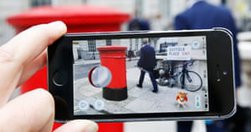
all recorded, rendered as data, processed, analysed, bought, bundled and resold like sub-prime mortgages...not some dystopian imagining of the future, but the present... the totality of information about our every thought, word and deed... traded for profit in new markets based on predicting our every need – or producing it... tech giants unilate…

Many of our political forebears pined for more polarization... fretted about the incoherence of their identities ... There were liberal Republicans ... opponents of civil rights and big government in the Democratic Party... 1976 ... Richard Nixon... proposed a universal health care ... created the Environmental Protection Agency... tighter i…
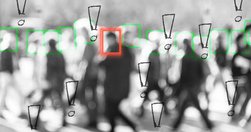
in this Special Issue ... explore the twin demons relating to attention... unwanted attention paid to us ... versus our own attention being unwittingly diverted ... living in a Panopticon versus the specter of our personal cognitive resources being fragmented and deleteriously diverted by too many competing digital factions that exploit intimate k…
I put together my own cheat sheet to keep in my back pocket for heated conversations to come
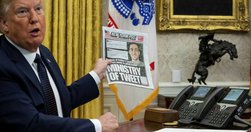
Facebook is wary of being drawn further into a political argument ahead ... divisive presidential election ... ... steer clear of fact-checking political advertisements... keen not to antagonise Mr Trump ... claiming that social media platforms are biased against Republican ... purely a business decision ... ubiquitous... it must always align with…
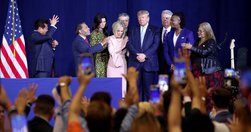
In less than a year... weekly church-attending white Protestants convinced that Donald Trump was anointed by God to be president grew from 29.6 percent to 49.5 percent... Capitalizing on that devotion is integral to Trump’s re-election ...all-enveloping digital campaign website... campaign app... a self-contained, self-reinforcing arena where Trum…
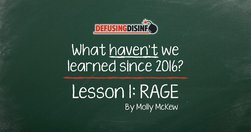
The rage-engage cycle is a key part of how malign narratives gain traction on social media... into traditional media... disinformation content is designed to be polarizing... exploits the business models of social media... pointing out that something is false and dangerous ... giving more oxygen to the fire... [Trump] tests and revises purposefull…
Despite some evidence that many politically minded people live in partisan echo chambers... strong evidence that encountering information across lines of difference (a) happens and (b) is consequential. split-ticket votes mostly likely by folks who spend some time with news media that reports from a different ideological perspective than their own…
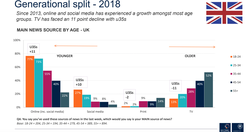
echo chambers and filter bubbles are slightly different... echo chambers could be a result of filtering or ... other processes, but filter bubbles have to be the result of algorithmic filtering...people main source of news roughly equal ... online and television... TV is more likely... people over 45. People under 45 are more likely to get their n…

our racial, cultural, and religious identities ... overlap with our political identities ... polarization operates on a social — and even primal — level... media executives can now create programming and content that really efficiently checks all the boxes...: political, psychological, racial, cultural, and even aesthetic...Path No. 1: We stay in …

It was 2010 and techno-optimism was surging... Pew Research Center ... asking 895 leading technologists, researchers, and critics for predictions of what the internet-connected world of 2020 would look like... 85 percent of respondents agreed that the “social benefits of internet use will far outweigh the negatives over the next decade,”...Flaws e…

journalism primarily do one thing: cover events... The internet has sped up the news cycle. Now we put more emphasis on covering the last event... But ... events in this era have ceased to drive politics...impeachment... Mueller investigation ... “Access Hollywood” tapes... barely leave a trace on the polls...Events don’t seem to be driving politi…

How seeing the other side’s narrative can de-polarize your mind... the heart of polarization is often not a disagreement about the facts of a particular narrative, but about whether that story is somehow representative... in a big, diverse and complicated society, multiple narratives can all be true at once...
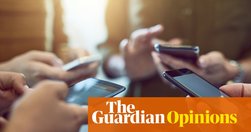
the bubble machine creates a politics of purity... I am not telling anyone to be mates with racists or stop being leftwing. I am just asking that we be less comfortably numb. The result of not speaking to those who don’t inhabit our precious bubbles will confront us this week

report reviews and summarises the recent available literature connecting polarisation and the news media...key findings...: little evidence that increased exposure to news featuring like-minded or opposing views leads to the widespread polarisation of attitudes... some studies found both can strengthen attitudes of minority who already hold stron…

copyright organisations ... succeeded in their lobbying ... establish a narrative that those who criticised the Directive were reeled in by hysterical propaganda or puppets of Google... or against cultural creators... intensity of the lobbying stepped up ... Half of Strasbourg was wearing yellow #yes2copyright sashes ... two years of implementat…

every place and thing in the real world—every street, lamppost, building, and room—will have its full-size digital twin in the mirrorworld... the next great digital platform...We will interact with it, manipulate it, and experience it like we do the real world... Eventually we’ll be able to search physical space as we might search a text... hyperl…
our analysis shows that social media use is clearly associated with incidental exposure to additional sources of news ... with more politically diverse news diets... The algorithms, of course, continually change... More sources does not necessarily mean more diverse... the majority in most countries and in most groups do not use sources from a…

Fighting people with facts only makes them cling to their beliefs more strongly, further polarising our damaged societies. Different tactics are needed, and they start closer to home than you think.
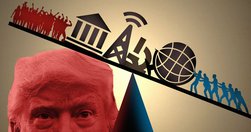
"We live in two universes. One universe is a lie... Everything run, dominated, and controlled by the left here and around the world is a lie. The other universe is where we are... seldom do these two universes ever overlap" This is not just run-of-the-mill ranting. It expresses something profound about the worldview of conservative media and its …
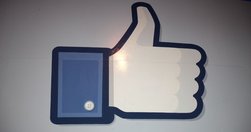
On fully eight of the nine measures, “polarization increases more for the old than the young.” If Facebook is the problem, then how come the problem is worst among those who don’t use Facebook? ... polarization is accelerating fastest among those using the internet the least... social media is important. It’s just not the whole picture... two mai…
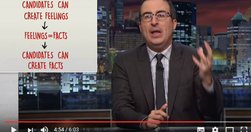
A couple of months ago I included augmented and virtual reality in Top3ics, my occasional newsletter, adding “Consider these as first notes towards a future post.” I then forgot about it. Thanks, Newt Gingrich!
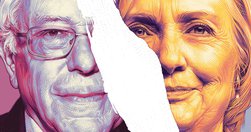
The Clinton-Sanders race wasn’t just about two candidates; instead, it underscored a series of deep and growing fissures among Democrats, along a wide range of complex fault lines—from age and race to gender and ideology. And these disagreements won’t fade... we turned to 23 leading historians, political scientists, pollsters, artists, and activis…
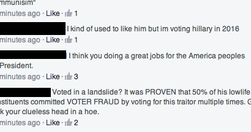
Study shows political discussions are ruining Facebook and friendships... users who try to talk about politics on Facebook are often surprised by the political opinions of their acquaintances... a diverse set of opinions among a user's friends makes everyone want to speak up less...Facebook has a low threshold for “friending” ... can bridge togeth…
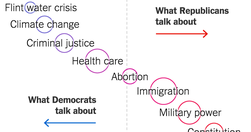
Democrats and Republicans sometimes seem to be living in two different Americas. We analyzed the past seven debates on each side to show which topics are most discussed within each party (nice, simple data visualisation here)
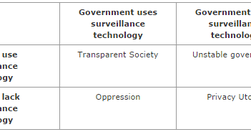
"... the surveillance society or the transparent society, the rise of camera surveillance seems unstoppable. The parallel I’d like to draw is to the rise of equality, as observed by Alexis de Tocqueville in his 1835 classic Democracy in America. " Really excellent, useful post. - The surveillance society is a step forward. But one that harkens b…
Relevant Overviews
- Communication Strategy
- Content Strategy
- Online Strategy
- Online Community Management
- Social Media Strategy
- Content Creation & Marketing
- Digital Transformation
- Surveillance Capitalism, Social media and Polarisation (Overview)
- Disinformation in the US 2020 elections
- Communications Tactics
- Psychology
- Social Web
- Media
- Politics
- Communications Strategy
- Science&Technology
- Business